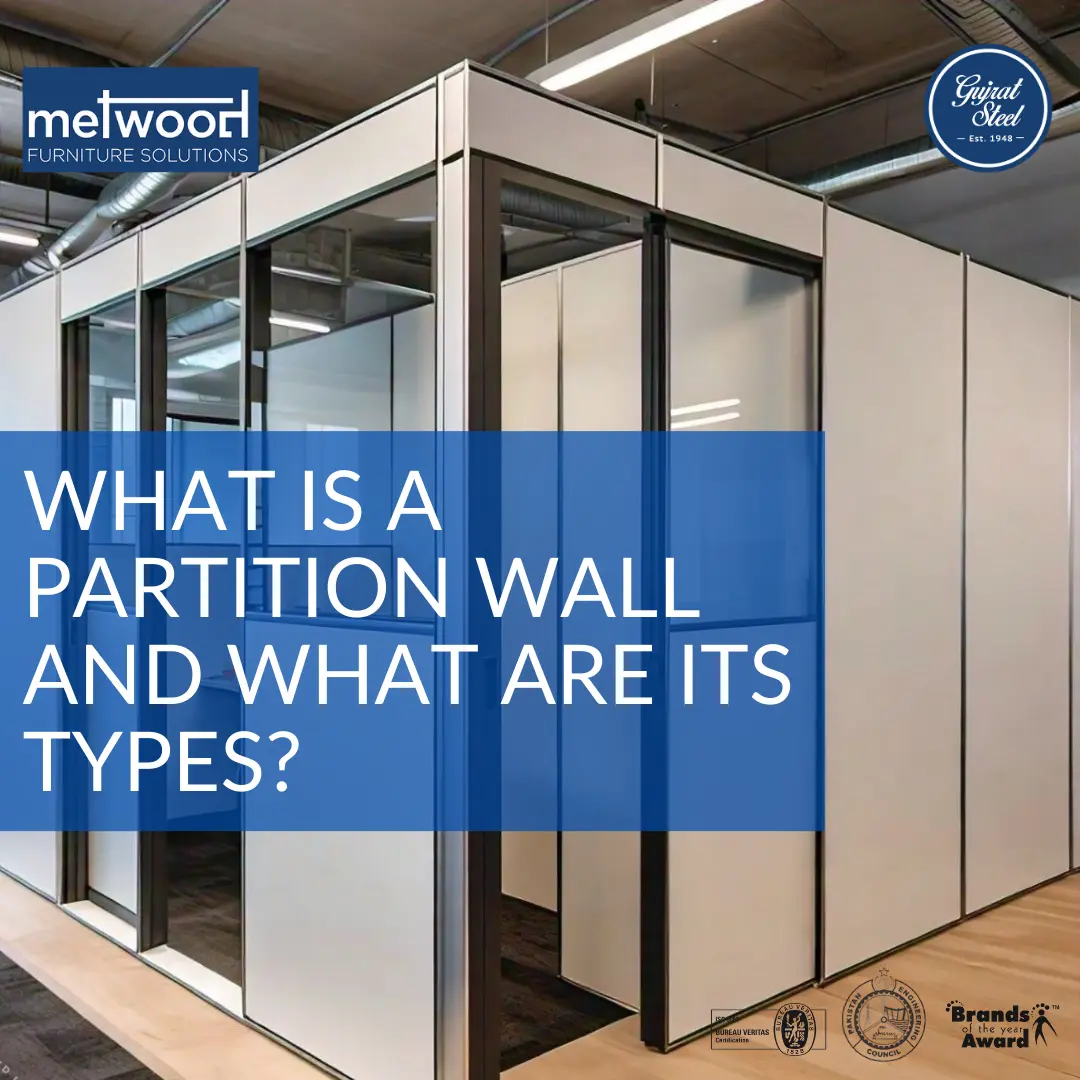Partition walls are essential components in the design and construction of buildings, offering versatility in creating functional and aesthetic spaces. Understanding the different types of partition walls and their applications can help you make informed decisions for your construction or renovation projects.
This comprehensive guide explores what partition walls are and what their benefits are. This blog also explores all the various types of Partition Walls available.
What Is a Partition Wall?
A partition wall is an interior, non-load-bearing wall that divides a space into separate areas. Unlike structural walls, which support the building’s weight, partition walls primarily serve to organize and define interior spaces. They can be temporary or permanent, depending on the materials used and the intended purpose. Partition walls offer numerous benefits, including:
- Flexibility: They allow for the reconfiguration of interior spaces without significant structural changes.
- Privacy: They provide acoustic separation and privacy in residential, commercial, and office settings.
- Aesthetics: They contribute to the interior design and aesthetics of a space.
- Insulation: They can offer thermal and acoustic insulation, enhancing the comfort of a building’s occupants.
Types of Partition Walls
There are several types of partition walls, each with unique characteristics and applications. Here are some of the most common types:
1. Brick Partition Walls
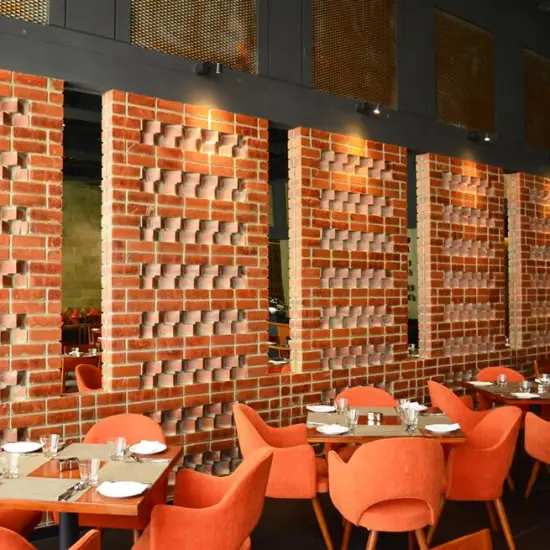
Brick partition walls are made from brick masonry and are often used in traditional construction. They offer durability and excellent sound insulation.
- Advantages: High strength, fire resistance, sound insulation
- Disadvantages: Heavy, labor-intensive to construct, limited flexibility.
- Applications: Residential buildings, commercial spaces, industrial facilities.
2. Glass Partition Walls
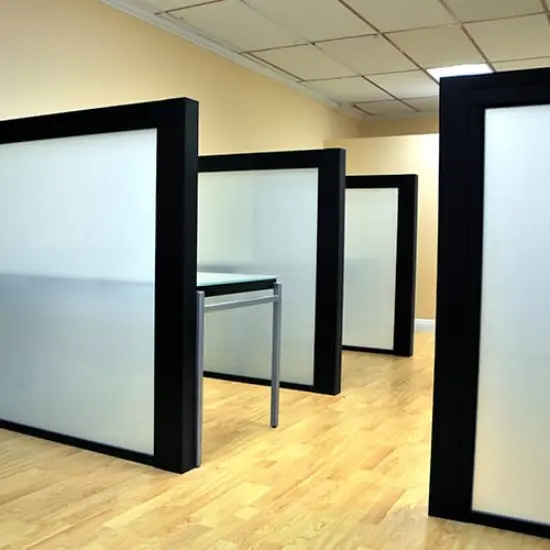
Glass partition walls are made from tempered or laminated glass panels, providing a modern and open look while maintaining the separation of spaces.
- Advantages: Aesthetic appeal, natural light transmission, modern look.
- Disadvantages: Limited sound insulation, higher cost, and potential privacy issues.
- Applications: Offices, commercial buildings, residential interiors.
3. Drywall Partition Walls
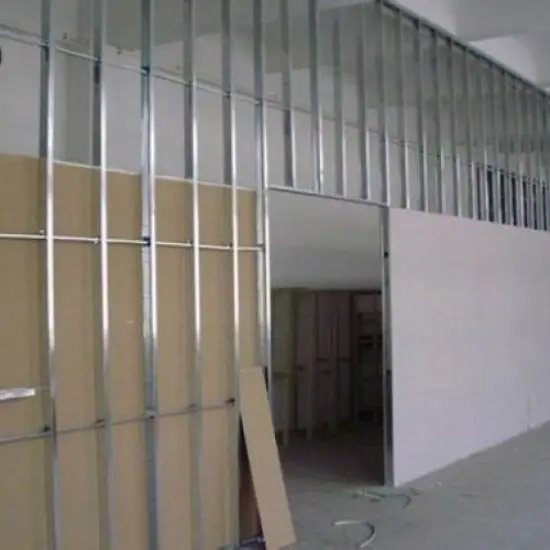
Drywall partition walls consist of gypsum boards attached to a metal or wooden frame. They are lightweight and easy to install, making them popular in residential and commercial settings.
- Advantages: Lightweight, easy to install, cost-effective, flexible design.
- Disadvantages: Lower durability compared to brick or concrete, can be damaged by moisture.
- Applications: Homes, offices, and retail spaces.
4. Wood Partition Walls
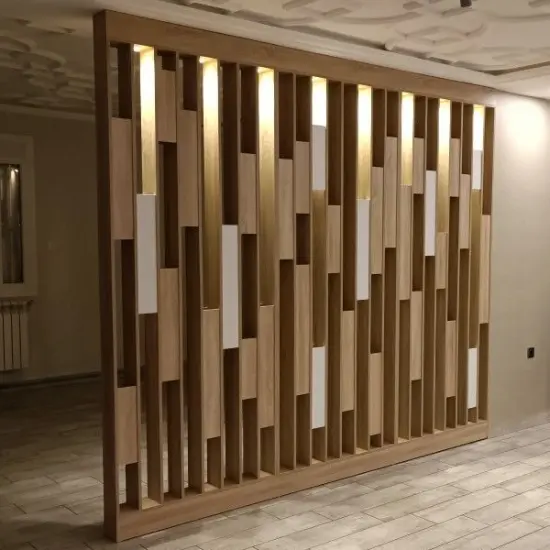
Wood partition walls are constructed from timber or wooden panels, offering a warm and natural look. They can be designed to be movable or fixed.
- Advantages: Natural aesthetic, versatility, ease of modification.
- Disadvantages: Susceptible to moisture and pests, lower fire resistance.
- Applications: Homes, rustic or traditional interiors, temporary partitions.
5. Metal Stud Partition Walls
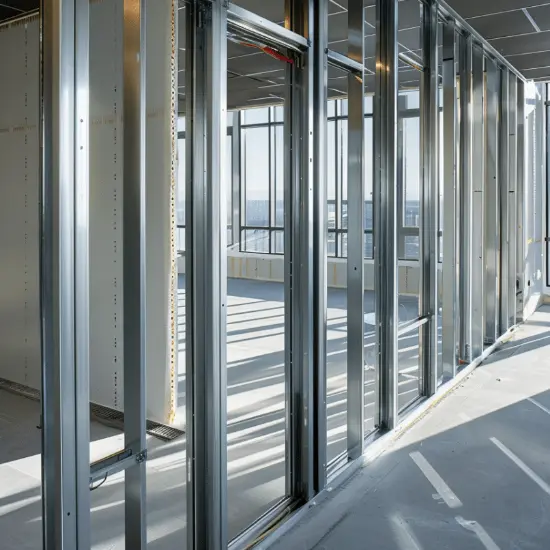
Metal stud partition walls use metal (usually steel) studs and tracks to create the framework, with plasterboard or drywall attached to both sides.
- Advantages: High strength, fire resistance, lightweight, resistant to pests.
- Disadvantages: Higher cost compared to wood, requires specialized tools for installation.
- Applications: Commercial buildings, offices, high-rise buildings.
6. Concrete Partition Walls
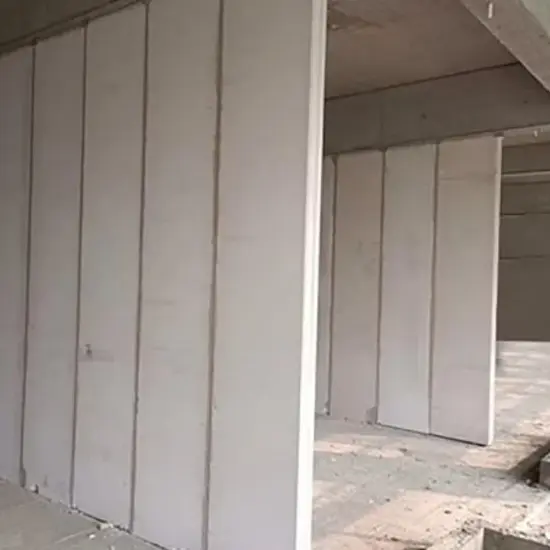
Concrete partition walls are constructed using precast or cast-in-place concrete panels. They are highly durable and offer excellent sound and fire insulation.
- Advantages: High durability, excellent sound and fire insulation.
- Disadvantages: Heavy, labor-intensive, higher cost.
- Applications: Industrial buildings, commercial spaces, high-security areas.
7. Movable or Demountable Partition Walls
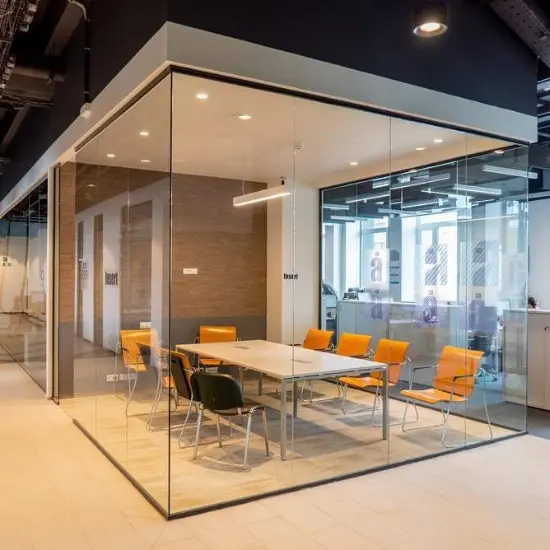
Movable or demountable partition walls are designed to be reconfigured or relocated as needed. They are commonly used in office environments where flexibility is crucial.
- Advantages: Flexibility, ease of reconfiguration, minimal disruption during changes.
- Disadvantages: Higher initial cost and limited structural strength.
- Applications: Offices, conference rooms, exhibition spaces.
8. Folding Partition Walls
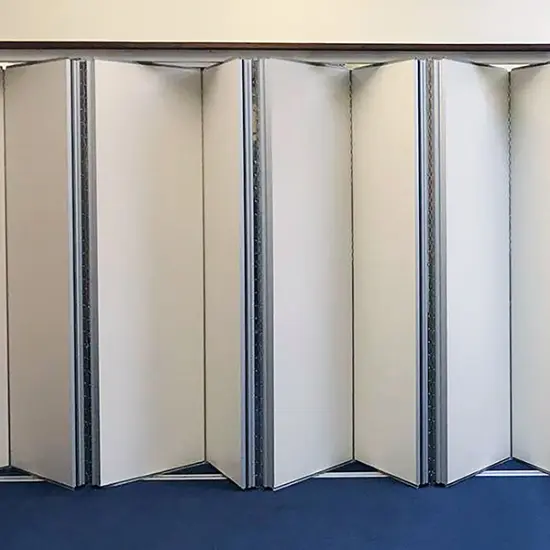
Folding partition walls, also known as accordion walls, are collapsible walls that can be folded away to open up space when needed. They are ideal for creating versatile, multi-functional areas.
- Advantages: Space-saving, flexible, easy to use.
- Disadvantages: Limited sound insulation, mechanical components can wear over time.
- Applications: Conference rooms, banquet halls, classrooms.
Choosing the Right Partition Wall
When selecting a partition wall, consider the following factors to ensure it meets your needs:
- Purpose: Determine the primary function of the partition wall. Is it for privacy, sound insulation, or aesthetic purposes?
- Material: Choose a material that fits the desired aesthetic and functional requirements. Consider durability, maintenance, and cost.
- Installation: Assess the complexity of installation and whether professional assistance is needed.
- Flexibility: If your space requires frequent reconfiguration, opt for movable or demountable partitions.
- Budget: Balance the initial cost with long-term benefits and maintenance requirements.
Conclusion
Partition walls are essential elements in building design, offering flexibility, privacy, and aesthetic appeal. Understanding the different types of partition walls and their applications can help you make informed decisions for your construction or renovation projects. From traditional brick and concrete walls to modern glass and movable partitions, there is a wide range of options to suit various needs and preferences. By considering factors such as purpose, material, installation, flexibility, and budget, you can choose the perfect partition wall to enhance your space.



